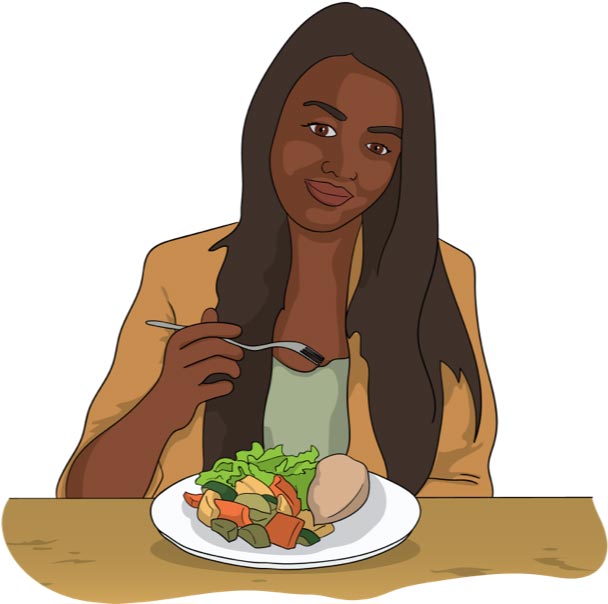- Home
- Treating cancer in our mob
- How treatment can make you feel

Treating cancer in our mob

How treatment can make you feel
If you’re having treatment for cancer, you might feel worse before you get better. It’s normal to feel that way. It can help to know that lots of our mob who have had cancer have felt the same way.
It is important to complete all your cancer treatment to get the best results for you. Talk to your doctor, nurse or Aboriginal and/or Torres Strait Islander health worker if you have any concerns about how you are feeling during treatment and things you can do to help you along your cancer journey like being on Country, cultural activities, Men’s Business and Women’s Business, being active and eating healthy.
It’s important to know that you can get help and support or talk to someone who understands. Read more about support
Physical effects
You might have some side-effects from the treatment. Side effects depend on the type of cancer you have, the types of treatment, and personal factors. Some side effects can be upsetting, but most side effects will decrease, then disappear in the weeks and months after treatment stops.
It can be physically tiring to travel to appointments, too, and even more tiring if you’ve had to travel away from home. It can also be distressing being away from family and Country.
Before you begin treatment, you might like to ask your treatment team which side-effects you might experience. There are more treatments or support services available to help with these effects. You may also like to combine traditional healing and cultural practices into your treatment plan to help with side effects. Ask about family attending appointments with you.
Follow-up visits with your doctor are a good chance to ask about any symptoms or side effects of your treatment, particularly if there is anything that is worrying you.
Emotional effects
Cancer and its treatment can also affect how you feel emotionally. You might feel lots of different things, maybe even at the same time. You might be hopeful that you will get better, but perhaps also worried. You might be scared, or sad, or worried about your family, or work, or other things.
All of this is completely normal, and it happens to lots of our mob including our loved ones who are close to us.

What you can do
The best thing you can do is to look after yourself, and put yourself first for a little while, so that you can go back to all your roles in family and mob when you’re stronger and ready. Some things to look after you:
- get plenty of rest
- eat healthy food
- drink lots of water
- be active and exercise regularly
- yarn with others to relieve emotions and stress
- surround yourself with people who love and support you
- find things to do that relax you and bring you joy
- stay engaged in your cultural activities like Men’s Business and Women’s Business
Yarn with your doctor, nurse or Aboriginal and/or Torres Strait Islander health worker for more ways to look after you. And read about where to get help and support.
Cancer Support groups
Some people find it helpful to be able to talk to other people who have been through or are going through cancer treatment that is like yours.
For information about cancer support groups in your area, talk to your doctor, nurse or Aboriginal and/or Torres Strait Islander health worker, or call the Cancer Council Helpline on 13 11 20.
Life with and after cancer
FIND OUT MORE
Where can I get help and support?
FIND OUT MORE

